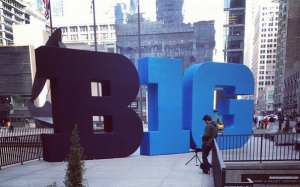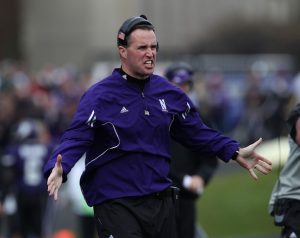In May, the Supreme Court issued a landmark ruling that opened the door for the legalization of sports betting in the United States. The highest court in the land ruled that a ban on sport betting was unconstitutional, and thus opened the door for the states to legalize gaming on sporting events.
Some states have legalizing sports gambling now, and others will do in so in the near term future. It’s an exciting time to be involved in the sports betting industry, as it is inevitably set to explode. July brings the unofficial start of the college football season, when leagues and teams hold their annual media days, and at B1G Media Days, sports betting was a very hot topic.
Rutgers is the state university of New Jersey, and due to the presence of Atlantic City within the state, it’s a place where there’s always a lot of interest in topics like point spreads, sports books, rated bookmakers and odds.
‘‘In the state of New Jersey, gambling is a big deal,’’ Said Rutgers Head Football Coach Chris Ash. ‘‘People are constantly trying to find information about your football team and injuries.’’
Northwestern Head Coach Pat Fitzgerald also pointed out how people are always trying to get insider information for sports betting purposes. Fitzgerald believes, first and foremost, how important it truly is to educate his team on the issues that surround sports betting. Fitz says his guys should:
“understand from a standpoint of what may end up happening to them in dorms, people asking them questions that maybe they’ve never been asked before. These new instant friends that they have as true freshmen, things of that nature.”
So what’s next for college football? How will sports betting change the game? The sport should, naturally, develop a national injury report, or “player availability” list, similar in nature to what the National Football League had.
“The availability of personnel, whether it comes from injury or transgression (suspension), is critical to people who are interested in gambling legally and illegally,” said Big Ten Commissioner Jim Delany in Chicago as Big Ten media days commenced.
“When players are unavailable, we should know that.”
Fitzgerald has already had a weekly injury report at NU, but he joked yesterday about the reliability of it (or lack thereof)
‘‘I’ve been accused of sometimes being honest and sometimes being less than honest,” the 13th year coach admitted. “I would agree with that.’’
“But if we move forward to where we have to have a fully transparent conference-wide or national one, I’d have no problem with that, as long as we adhere to it,” he added.
“There needs to be accountability. If there’s not accountability to it, then I’ll do whatever I have to do to protect our players, first and foremost, and protect our program second, in full disclosure of transparency.”
The more transparent the injury report, the more accurate the point spreads will then be.
Paul M. Banks runs The Sports Bank.net and TheBank.News, which is partnered with News Now. Banks, a former writer for NBC Chicago.com and Chicago Tribune.com, is currently a regular contributor to SB Nation, WGN CLTV and Chicago Now.
Follow him on Twitter, Instagram, Sound Cloud and YouTube. The content of his cat’s Instagram account is unquestionably superior to any and all of his.



